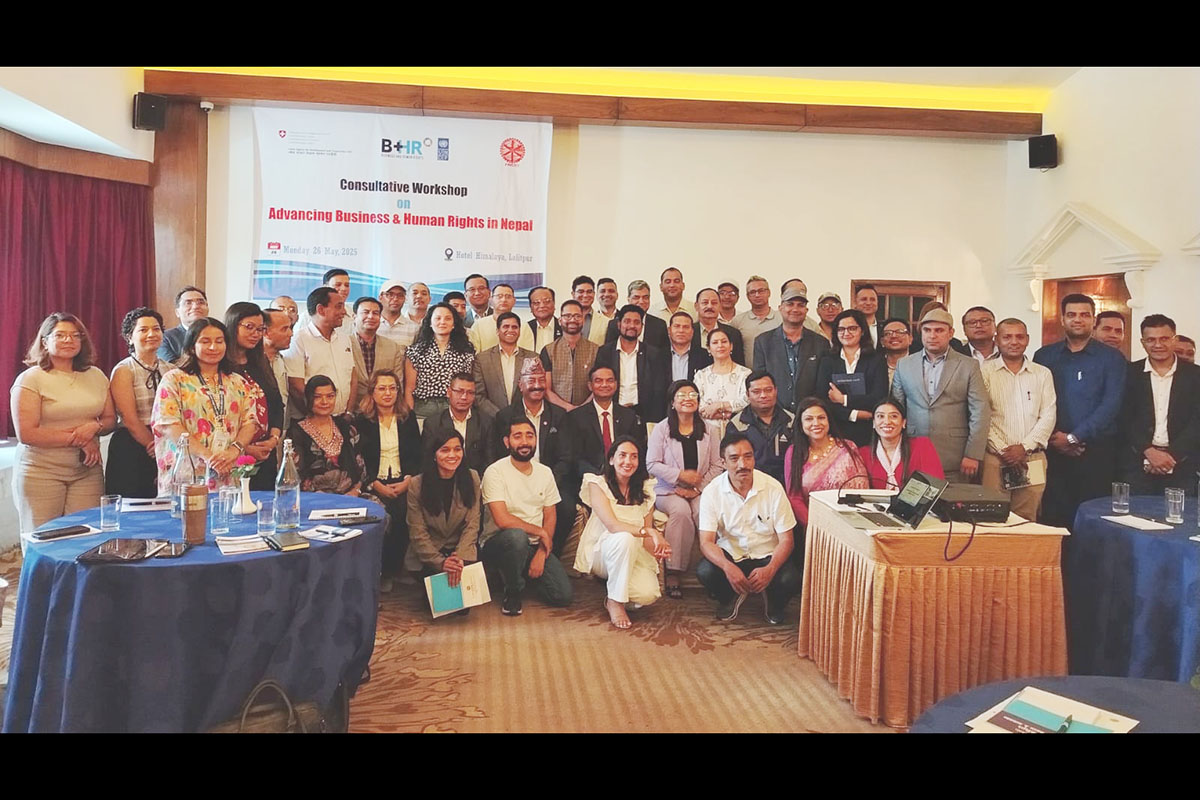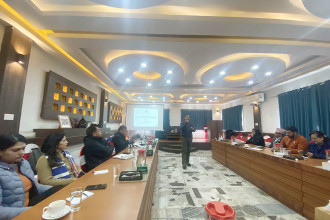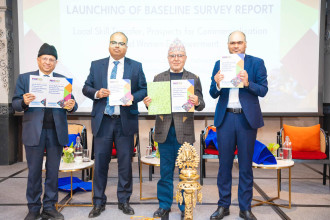
- Stakeholders emphasise need to integrate business and human rights in Nepal
KATHMANDU: Federation of Nepalese Chambers of Commerce and Industry (FNCCI), with the support of the United Nations Development Programme (UNDP) and the Swiss Agency for Development and Cooperation (SDC), organised the Consultative Workshop on Advancing Business and Human Rights in Nepal. During the workshop held in Kathmandu on Monday, stakeholders emphasised the need to integrate business and human rights.
On the occasion, speakers and participants highlighted the necessity of a coordinated role from all parties in implementing the national action plan. The Government of Nepal drafted and began implementing the "National Action Plan on Business and Human Rights" last year. This action plan includes provisions related to labour rights, women's and children's rights, consumer rights and the right to equality and non-discrimination.
Krishna Hari Pushkar, Secretary of the Ministry of Labour, Employment and Social Security (MoLESS), speaking at the event, stated that this is not a new policy or law. Instead, it is an action plan designed to ensure compliance with existing policies and laws related to human rights protection.
MoLESS Secretary Pushkar further mentioned that while human rights protection is a fundamental responsibility of the state, the role of other stakeholders is equally crucial given various national and international laws. He stated, "The influence and role of the business sector in the country's economic and social development are increasing. In this context, the business sector's responsibilities are also growing. All stakeholders must be responsible in its implementation. Only then will its implementation be smooth."
Sur Krishna Vaidya, FNCCI Vice President (Industry Commerce), asserted that adopting awareness of business and human rights helps the industry and business sector to identify potential risks that may arise from their operations. He also suggested that integrating human rights into a company's management system can improve corporate governance and create new opportunities. He also pledged FNCCI's active commitment to implementing the National Action Plan on Business and Human Rights.
Tek Tamata, UNDP Nepal Portfolio Manager, described business and human rights as a multi-stakeholder issue, emphasising that all parties are equally responsible for its implementation. Tamata also pointed out that as Nepal enters the global market, this issue becomes essential for expanding trade and business in countries where Business and Human Rights (B+HR) are already implemented. He also highlighted the significant role of development partners in the effective implementation of the action plan.
FNCCI has already organised interactive programmes with stakeholders in seven provinces to disseminate information on business and human rights. As an employer organisation in Nepal, FNCCI has been working on various labour and worker-related issues through tripartite agreements and partnerships with the Government of Nepal, employers and trade unions.





